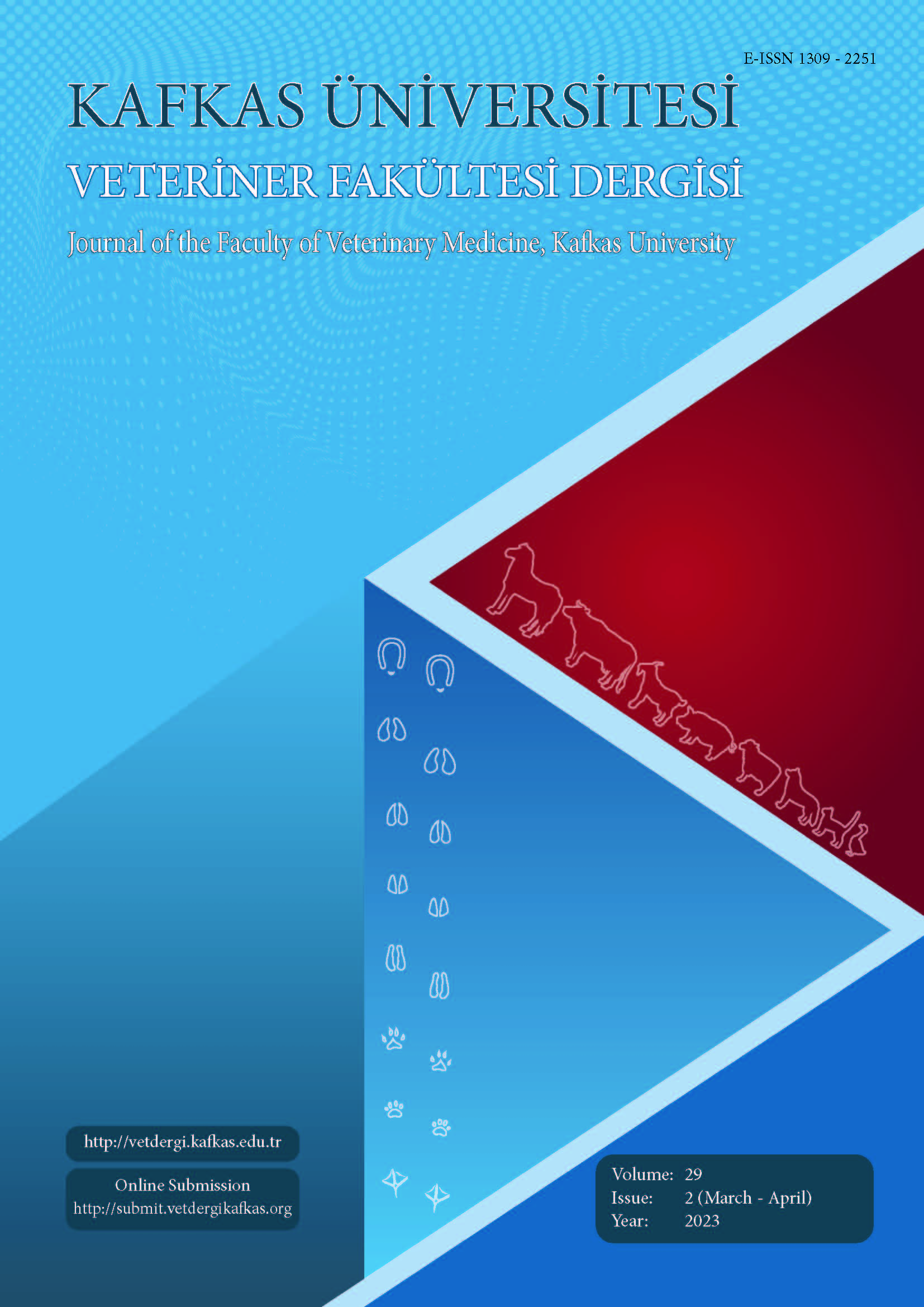
This journal is licensed under a Creative Commons Attribution-NonCommercial 4.0 International License
Kafkas Üniversitesi Veteriner Fakültesi Dergisi
2023 , Vol 29 , Issue 2
Canine Adipose Tissue Stem Cells Induced With Toll-Like Receptor Agonists Exhibit Antibacterial Activity Against Multi Drug Resistant Pathogens
1Marmara University, School of Medicine, Department of Medical Microbiology, TR-34854 İstanbul - TÜRKİYE2Marmara University Hospital, Medical Microbiology Department, TR-34899 İstanbul - TÜRKİYE
3Marmara University, School of Medicine, Department of Immunology, TR-34854 İstanbul - TÜRKİYE DOI : 10.9775/kvfd.2022.28863 Infections caused by antibiotic-resistant pathogens pose a major threat worldwide. There is an urgent need to develop effective strategies to solve this problem. The antibacterial activity of adult mesenchymal stem cells (MSCs) has recently been determined against various bacterial isolates. New approaches, such as Toll-like receptor activation, were used to enhance their antibacterial potency. This study examines the antibacterial activity of TLR agonist (TLR2/TLR1 and/or TLR2/TLR6) activated adipose-derived canine MSCs (AD-MSCs) on multidrug resistant isolates including Staphylococcus aureus, Escherichia coli, Enterococcus faecalis, and Pseudomonas aeruginosa regarding bacterial growth, and minimum inhibitory concentration (MIC) determination. Effects on bacterial morphology were assessed by electron microscopy. Our results showed that the AD-MSCs conditioned medium primed with different TLR agonists inhibited the growth of E. coli and S. aureus, but it had a decreased effect on E. faecalis and P. aeruginosa. Despite this, AD-MSCs conditioned medium prepared with the combination of TLR agonists exhibited antibacterial activity against all isolates. These findings were in parallel with MIC levels of conditioned media. We conclude that adipose-derived canine MSCs primed with TLR agonists (TLR2/TLR1 and TLR2/TLR6 combination) possess antimicrobial activity against multi-drug resistant isolates of E. coli, S. aureus, E. faecalis and P. aeruginosa. Further studies for testing in in vivo models are being planned to assess the potential application of AD-MSCs as an adjunct treatment modality for multi drug resistant infections. Keywords : Antibacterial agent, Gram negative bacteria, Gram positive bacteria, Mesenchymal stem cell, Multidrug resistance











